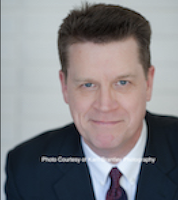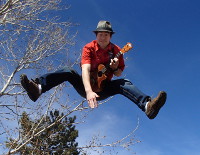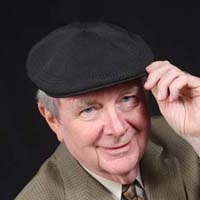| View previous topic :: View next topic |
| Author |
Message |
StrangeAsAngels
Joined: 07 Oct 2014
Posts: 13
|
 Posted: Sat Oct 11, 2014 3:00 pm Post subject: Shure A15HP High Pass Filter and "impedance" Posted: Sat Oct 11, 2014 3:00 pm Post subject: Shure A15HP High Pass Filter and "impedance" |
 |
|
Hi, all.
I have started recording audiobooks at home through ACX. I put a lot into getting my space sounding just right (absorbing all the echo/reverb). I'm really happy with how it sounds but I still get the occasional plane overhead and this morning when i was recording, my neighbor's (I live in a duplex) washing machine rumble interfered.
ACX recommends using something called a Shure A15HP High Pass Filter to get rid of low frequency rumble. I have done some research on this and according to Shure, the filter was "Designed for 150 ohm rated microphones and inputs". My microphone is the Sennheiser MK-4. Here's what i found about its "impedance": 1000 ohms minimum terminating impedance
With 50 ohms nominal impedance and 25mV/Pa sensitivity to deliver full sound.
I'm not even going to pretend to know what impedance is or how this all relates. I apologize if this is a daft question but I don't want to throw my money away on a useless purchase.
So my question is will I be able to use the low pass filter with my microphone... or actually, will this filter help me with my problem?
Thanks for reading.... |
|
| Back to top |
|
 |
Rob Ellis
M&M

Joined: 01 Aug 2006
Posts: 2385
Location: Detroit
|
 Posted: Sat Oct 11, 2014 3:33 pm Post subject: Posted: Sat Oct 11, 2014 3:33 pm Post subject: |
 |
|
| I'm no engineer, but I think sound isolation is what you need.....I doubt that just a high pass filter will completely eliminate the noises you are describing....have you a considered a good dynamic mic like an SM7B or RE20? |
|
| Back to top |
|
 |
StrangeAsAngels
Joined: 07 Oct 2014
Posts: 13
|
 Posted: Sat Oct 11, 2014 3:41 pm Post subject: Posted: Sat Oct 11, 2014 3:41 pm Post subject: |
 |
|
No. I just invested a lot of money just getting my home space set up. I read that the Sennheiser was good for women with midrange vocals which is why I ended up going with that. I'm new to all this and had to rely on Sweetwaters' sales reps and people in forums to advise me. At this point, I cannot return the mic so I'm sort of stuck with it. It's a great microphone.
I don't have a lot of money so investing in a whisper room is not in my budget right now. I also rent so making additional changes to "soundproof" this space isn't realistic. My landlord who lives in Australia could decide tomorrow that he's moving back to the states and I would have to move.
The interferences are intermittent. I live in the country but I do live near a private airport where it's windy sometimes and I do have a neighbor who shares a common wall with me. If I recorded at night, I'm sure I'd have less disruptions.
The high pass filter supposedly helps reduce outside noise. I'm wondering if anyone here has used one.... |
|
| Back to top |
|
 |
Jason Huggins
The Gates of Troy

Joined: 12 Aug 2011
Posts: 1846
Location: In the souls of a million jeans
|
 Posted: Sat Oct 11, 2014 5:03 pm Post subject: Posted: Sat Oct 11, 2014 5:03 pm Post subject: |
 |
|
A HPF reduces low frequencies at the frequency it is set for. It will do nothing for frequencies above that level. There is no processing (software or hardware) that will take the place of true soundproofing. The HPF doesn't block "noise." It attenuates certain frequencies (usually 80hz or below...sometimes 100hz). How much the HPF helps will depend on the frequency of the noise. It might stop some of the washer, but probably won't help for a plane. You'll just have to pause recording if you can't do real soundproofing.
Changing impedance on a preamp will alter your tone slightly, but the VAST majority of preamps don't have variable impedance. You can probably ignore that info. Plug the mic into the pre (or interface with a pre) and record. Don't worry about those numbers for the time being. Most mics and preamps have no need for impedance changes (at this level).
The MK4 will work fine. It has a capsule from a live performance vocal condenser, but if you like the sound that is all that matters.
The Shure A15HP is just an inline hardware HPF that goes between the mic and the preamp. It will attenuate frequencies below 100hz, but at 100hz it will affect your vocal tone. Just do the HPF with a plugin at 80hz or below. You can always do that in post if you need it.
Welcome to the forum! |
|
| Back to top |
|
 |
vkuehn
DC

Joined: 24 Apr 2013
Posts: 688
Location: Vernon now calls Wisconsin home
|
 Posted: Sat Oct 11, 2014 6:08 pm Post subject: Posted: Sat Oct 11, 2014 6:08 pm Post subject: |
 |
|
I feel your pain! I have fought some of the same battles you are working with.
I'm going to take a different view from the previous post. Since we are working with female voice (if I read correctly) the 100 hz filter is not likely to do anything unkind to your voice. And beyond that, I think maybe the folks at Audible and ACX roll off low frequencies anyway so anything you lose with the filter you are considering, is likely to be lost later in the process anyway. (If you want to compete for business doing broadcast commercials you could end up dealing with producers who want to hear the low frequency in their monitors.... whether the stations broadcast the low frequencies or not!)
Tell us what software you are using. Some software has excellent equalizer processes. Why not just take the low frequencies out in editing/producing? (Some software that narrators are using does NOT have robust equalizer abilities.)
And your comfort level with your software will come into play with my next suggestion: We dream of reading an entire chapter through with no errors, no interruptions, no edits necessary. For many of us, that is just a dream. I live on a road traveled by people with interesting toys. Sometimes in the middle of a paragraph I just start talking to myself: "Oh, we have car. Varoom, varoom. Come on people. Get out of my life. Mumble, Mumble. Oh the car is gone. Lets go back and start over." And during the edit process, SNIP. That nonsense disappears. For some people that kind of "breaker character" is a killer. I just assume it is part of life and I roll with the punches.
The biggest problem I see in your scenario is the neighbor's laundry. I have a suspicion that there is not enough money in this world to sound proof against that. You need to figure out the neighbors laundry schedule and work around it, or if you have a co-operative, friendly, helpful neighbor, work out a schedule understanding. I know. There are neighbors that would purposely run laundry just to screw up your life so think your way through working with the neighbor.
Can you record a sample for us and post it here? One that includes the laundry would be great. (And one that does NOT include the laundry for comparison.) Leave some long pauses in the recording we we can measure and analyze the room noise for you. Then maybe we can offer more specific suggestions.
Vernon Kuehn Cumming GA |
|
| Back to top |
|
 |
StrangeAsAngels
Joined: 07 Oct 2014
Posts: 13
|
 Posted: Sat Oct 11, 2014 6:58 pm Post subject: Posted: Sat Oct 11, 2014 6:58 pm Post subject: |
 |
|
Thanks, guys. I really appreciate the input and the welcome.
I'm new to producing my own audio so I am sort of learning as I go.
Vernon, I'd love to upload a sample from my studio. The more feedback I can get, the better. The neighbor has only lived next door for maybe two months so I don't really know her. Her laundry room is near the wall where my recording space is. I was afraid of that.. We actually share a house in the country. I live in the converted "granny" and given the small space, it was challenging to get this set up but I hired a handyman, invested in a curtain rod, Studio Suits and auralex as well as some recording gear to set myself up. My handyman put sheet rock outside of small window inside my recording space but i still have the outside interference. I'm relatively lucky in regard to interference. I'm sure it'd be a lot worse living in a city. Today, the worse part was the airplane noise--- a small plane was pulling some message around the area where I live (can't for the life of me understand why, since I live in the middle of nowhere amidst rolling barren hills and vineyards so it's not like there's an audience out here).
I am using Adobe Audition to record/edit/master. I don't really know that much about post production and everything I've read related to ACX makes me really paranoid about doing too much of anything for fear of getting rejected. I stick to being conservative when recording (so my raw files are below their parameters for peak amplitude and RMS) and restrict mastering to normalization, EQ and limiting.
Can either of you recommend any resources where I can learn about the dynamics of sound production? I think it would be helpful so that I can understand. I have a background in acting and broadcasting but very limited experience in sound production. I just got my studio together and I already got an audiobook gig which I started recording today and 2 lined up in the queue. I have a full time job on top of this so I'm limited in regard to when I can record. Nights and Weekends are it for me. Of course, with any luck I can one day do this full time but since I'm just starting out, I need to stick with where the bulk of my income/health insurance is coming from.
I will listen for when the neighbor is doing laundry so I can record...not sure if that will happen tomorrow but perhaps I will be able to catch a plane so you can hear it and I can post a link....
thanks again. |
|
| Back to top |
|
 |
vkuehn
DC

Joined: 24 Apr 2013
Posts: 688
Location: Vernon now calls Wisconsin home
|
 Posted: Sat Oct 11, 2014 8:00 pm Post subject: Posted: Sat Oct 11, 2014 8:00 pm Post subject: |
 |
|
| StrangeAsAngels wrote: |
I am using Adobe Audition to record/edit/master. I don't really know that much about post production and everything I've read related to ACX makes me really paranoid about doing too much of anything for fear of getting rejected. I stick to being conservative when recording (so my raw files are below their parameters for peak amplitude and RMS) and restrict mastering to normalization, EQ and limiting.
|
Audition is a GREAT program, but it has a heavy learning curve.
Apparently they don't use Audition at ACX so don't expect to get Audition specific advice from them.
I had to snicker at your post: You are restricting yourself to narmalization, EQ, and Limiting? When you become good at those three things.... you are 99% there!!! What else is there to do!
Well maybe there is one thing I am overlooking. I am taking for granted that if you stop in the middle of a sentence or a paragraph and start over, you know how to select the unwanted material and just delete it... edit it out.
The one thing missing from your list of things you limit yourself to is NOISE REDUCTION. As a practical matter, noise reduction has it limits. Get too aggressive with NR and the audio file becomes chopped liver. But when you get every thing else right and just a little noise reduction is needed, the software can be your friend.
Do get one sample recording with the laundry noise in there. Let's see how bad it is. |
|
| Back to top |
|
 |
georgethetech
The Gates of Troy

Joined: 18 Mar 2007
Posts: 1878
Location: Topanga, CA
|
 Posted: Sun Oct 12, 2014 12:14 am Post subject: Posted: Sun Oct 12, 2014 12:14 am Post subject: |
 |
|
The shure will likely be helpful, but hearing is believing.
I'll take a chance despite fear of being booted for marketing a service, but you'd benefit the most at this point from this:
http://vostudiotech.com/ve-ab-mastering/
_________________
If it sounds good, it is good.
George Whittam
GeorgeThe.Tech
424-226-8528
VOBS.TV Co-host
TheProAudioSuite.com Co-host
TriBooth.com Co-founder |
|
| Back to top |
|
 |
StrangeAsAngels
Joined: 07 Oct 2014
Posts: 13
|
 Posted: Sun Oct 12, 2014 11:20 am Post subject: Posted: Sun Oct 12, 2014 11:20 am Post subject: |
 |
|
I recorded a couple of planes outside. Funny, I heard it clearly through my headphones/interface when I was recording through Adobe Audition. It is not audible to me, however, when I play in itunes or quicktime or through Soundcloud. Wondering if any of you can make it out.... It is a low rumble. There seems to be a lot of plane activity this weekend. So far, the neighbor has stayed away from her washing machine.
https://soundcloud.com/strangeasangels-2/plane |
|
| Back to top |
|
 |
vkuehn
DC

Joined: 24 Apr 2013
Posts: 688
Location: Vernon now calls Wisconsin home
|
 Posted: Sun Oct 12, 2014 9:38 pm Post subject: Posted: Sun Oct 12, 2014 9:38 pm Post subject: |
 |
|
Has anyone been able to access the file on Soundcloud? I couldn't get to it.
StrangeAsAngels: Maybe you can go into your account and change something that will allow us to hear the file. I get a pop-up screen indicating that it is a private file and that I should provide a log-in to access it. Apparently it wants your password, not mine. Do you have an option that allows you to make the file public? |
|
| Back to top |
|
 |
StrangeAsAngels
Joined: 07 Oct 2014
Posts: 13
|
 Posted: Mon Oct 13, 2014 6:44 am Post subject: Posted: Mon Oct 13, 2014 6:44 am Post subject: |
 |
|
Sorry, I was under the impression that even if it was set to "private" anybody could get to it with the url. Apparently, I was mistaken.
I've set the profile to public so you should be able to get to it now:
https://soundcloud.com/strangeasangels-2/plane |
|
| Back to top |
|
 |
vkuehn
DC

Joined: 24 Apr 2013
Posts: 688
Location: Vernon now calls Wisconsin home
|
 Posted: Mon Oct 13, 2014 8:07 am Post subject: Posted: Mon Oct 13, 2014 8:07 am Post subject: |
 |
|
Yes, it is now accessible.
Next time you capture a "noise" recording, include a bit of your voice. The key to measuring noise is to compare it to the level of normal signal. The airplane noise is at -60 dbFS. That would be great if the recording had been normalized so the program content was -3 dbFS. But my memory is that you record your voice so that it does not exceed -16 so that means the airplane is only -44.
But the airplane is not more than 5 db louder than the "standing noise" in your studio. The standing noise is pretty much below 120, 130 hz. You will have to experiment with using the software High Pass Filter in your Audition. How much low frequency energy can you roll off before the filter eats into your voice content?
The airplane when it growls is at about 200 hz. I would not want to run a 200 hz notch against an entire session, but you might be able to highlight just the section with airplane noise and run a 200 hz notch against that 3 or 4 seconds and maybe not create a noticeable hole in your narration. |
|
| Back to top |
|
 |
vkuehn
DC

Joined: 24 Apr 2013
Posts: 688
Location: Vernon now calls Wisconsin home
|
 Posted: Tue Oct 14, 2014 6:30 pm Post subject: Posted: Tue Oct 14, 2014 6:30 pm Post subject: |
 |
|
This is a "wild card" idea that may not help, but...... who knows.
Consider how your mic is mounted/supported. If the noise of the laundry next door is coming through the wall and you mic is on a bracket or arm attached to the wall, is he laundry noise being mechanically enhanced?
If the building in on joist and flooring construction, the noise could be mechanically coming via floor vibration mare than being airborne.
Make a recording with the mic as is, detach the mic from it's mount and continue the recording while holding the mic, maybe using a towel or other material to minimize handling noise.
Chances are there will be very little change in the noise of the laundry being done next door. Then again, you could learn something that would save a lot of grief and expense. |
|
| Back to top |
|
 |
|


